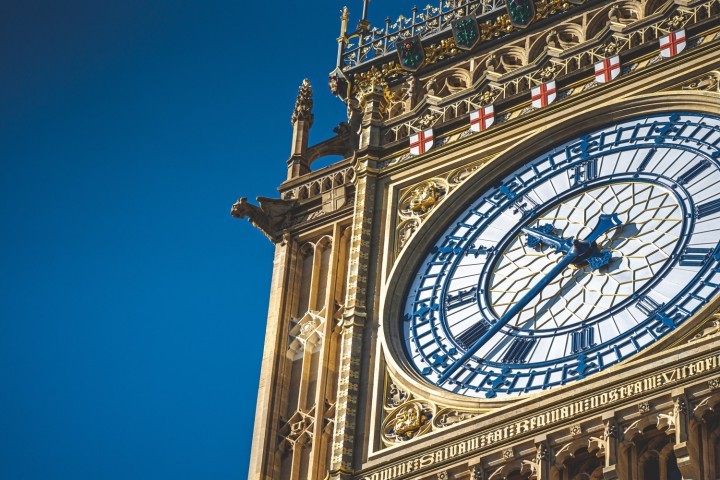The chancellor's 2023 autumn statement - which contained 110 measures designed to promote investment and growth - has been given a cautious welcome by Lancashire businesses.
The majority agree that the measures, including reducing National Insurance contributions for individuals and continuing 'full expensing' to enable businesses to invest more, sound good in theory.
But much hangs on the implementation, and whether the country's spending habits will alter in line with Jeremy Hunt's predictions remain to be seen.
Will these announcements significantly improve the economy? And will that be enough to save the Conservative party come the election?
Jane Parry of PM+M said: "Hunt’s claims that the economy has turned a corner are probably true. The key will be if people start to feel richer and believe their lost spending power is slowly returning or get the confidence to spend some of the £140bn of savings built up during the pandemic. However, it might all come a little too late if he and Rishi Sunak are hoping for a pre-election recovery."
Tony Medcalf of MHA Moore and Smalley added: "My gut feeling is the chancellor has resisted the temptation to make even bigger, headline-grabbing fiscal changes today so that he can save them for the spring budget. That will be one of the last major opportunities to create an ideological difference between the government and its opposition parties before the UK goes to the vote."
Analysis
Tony Medcalf, tax partner at MHA Moore and Smalley
The move to make ‘full expensing’ a permanent measure is the most significant of today’s announcements as it will offer business owners certainty to plan and make those key investments that can grow their business and the economy.
From a personal taxation standpoint, the significant reduction in National Insurance contributions for the self-employed will be roundly welcomed and the cuts to employee National Insurance from 12 per cent to 10 per cent also went further than expected.
However, the question remains – will today’s decisions prompt significant economic growth in the coming weeks, following more than a year of rising interest rates, high energy costs, and stagnation in the economy?
My gut feeling is the chancellor has resisted the temptation to make even bigger, headline-grabbing fiscal changes today so that he can save them for the spring budget. That will be one of the last major opportunities to create an ideological difference between the government and its opposition parties before the UK goes to the vote.
Jane Parry, tax partner at PM+M
In today’s autumn statement, the chancellor lauded the government’s achievement of meeting its target of halving inflation. No one could argue that is a good thing, but some caution is needed as most of that drop has been driven by falling energy prices, and prices are still rising – albeit at a slower rate. However, thanks to the OBR’s reassessment of the public finances, he now has billions of extra economic firepower that has come at just the right time for the Tories as we enter an election year.
The decision to cut national insurance will play out well, but there is a risk that putting cash in consumers’ wallets could drive up prices when the pressure needs to be on continuing to bring down inflation. I’m also not sure it will do much to actually stimulate wider economic growth and may even require the Bank of England to keep interest rates higher for longer. I would also question why self-employed people are only seeing a 1 per cent drop and why he hasn’t made any matching reductions in employers’ NIC.
The decision to make permanent the 100 per cent expensing allowance for investment is great news for big businesses. However, only a small proportion of businesses use expensing. The vast majority of smaller businesses already get maximum tax relief for their capital expenditure via the £1m annual investment allowance. They won’t see any benefit from what the chancellor was heralding as the biggest business tax cut in modern British history. The decision to go ahead and merge the SME and large company R&D tax credit schemes goes against widespread calls to defer the change, but at least it will give businesses certainty about the relief available for their investment. In practice, and in response to much publicised abuse of the scheme, there has been a huge sea change in how HMRC respond to R&D claims and we are seeing a very draconian approach which is slowing down claims and deterring many businesses from attempting to make claims. It is to be hoped that this will settle down soon so that companies genuinely investing in R&D can have the confidence that this will be properly rewarded.
The news the government is committing to a further £50m for a two-year apprenticeship pilot that will explore new ways of stimulating training in growth sectors is most welcome. Its success, will of course, depend on how it is actually rolled out and implemented.
Whilst the 9.8 per cent increase in the National Minimum Wage is appreciated and much needed, no mention was made of how the Chancellor plans to support businesses already under pressure from increasing wage costs. This will be particularly challenging for sectors such as the care sector where wages are the biggest cost and profitability is already tight. There was also no mention of lessening the inequitable benefits trap which sees low income workers seeing only minimal benefit from working extra hours as their benefits are clawed back. Solving this might have helped unlock some of the additional labour capacity he was so keen to talk about.
Hunt’s claims that the economy has turned a corner are probably true after a series of massive challenges, including the war in Ukraine and the pandemic. Inflation is – of course – now falling but the economy isn’t out of the woods and there is still a risk of recession next year. Over the next few months, the key will be if people start to feel richer and believe their lost spending power is slowly returning or get the confidence to spend some of the £140bn of savings built up during the pandemic. However, it might all come a little too late if he and Rishi Sunak are hoping for a pre-election recovery.
Matthew Johnson, associate partner, WNJ Chartered Accountants
Small business owners and those that work for themselves have felt the pressure of the cost-of-living, high inflation and the continuing impact of the pandemic over the past year. So the measures to reduce their tax burden will be widely welcomed, not least the changes to national insurance, including abolishing class 2 payments.
The benefit for individuals is not large but every little helps. Whether the general reduction in national insurance will encourage more spending to stimulate growth remains to be seen.
The extension of the 75 per business rates discount for hospitality, retail and leisure for another year will also help businesses that really are under pressure. Moves to help end the scourge of late payment are also positive though more action is needed.
With 110 measures to “promote growth” in the statement the devil will now be in the detail as each are examined carefully over the coming days.
Questa Chartered
The chancellor's announcement to cut business taxes signals a significant shift in the UK's economic landscape. This move is poised to enhance the profitability of companies, large and small, paving the way for increased reinvestment and growth. It's a promising development for businesses struggling in the current economic climate, offering a lifeline to those looking to expand or innovate.
The increase in the national living wage from £10.42 to £11.44 marks a substantial uplift for millions of workers. This change not only puts more money into the pockets of the workforce but also has the potential to drive consumer spending. This could translate into higher demand and sales for businesses, particularly in the retail and service sectors.
The Autumn Statement's announcement of a 2 per cent cut in National Insurance marks a significant shift for workers across the UK. This reduction means more money in the pockets of millions, enhancing their ability to save and invest. For families, this could translate into an opportunity to bolster their savings, pay down debts, or contribute more towards pensions and investments. In a time where every penny counts, this change offers a much-needed financial respite.
The decision to increase the state pension by 8.5 per cent is significant for current and future retirees. With this considerable rise, pensioners can expect a more comfortable financial cushion, beating inflation rates that have been a concern for many.
The government's welfare reforms, aimed at encouraging employment, present a complex scenario for businesses. On the one hand, a potentially larger workforce; on the other, reduced benefits could impact consumer spending power, particularly among lower-income groups. This could have varied implications depending on the sector and customer base of the business.
Jonathan Rolande, National Association of Property Buyers
The Local Housing Allowance Increase is to be welcomed, rents have increased dramatically in recent years and a higher allowance means tenants will be more able to keep up with their rent payments.
That said, it may be seen by some landlords as an opportunity to push up rents even further, fuelling inflation in the sector. The announcements around planning were not predicted and came as a surprise. Making homes easier to split makes good sense – two households in the space of one – but in reality few homes lend themselves to this kind of conversion and the cost of work can be very high. We won’t see the opportunity taken by most owners.
Payments for those near vital electricity infrastructure is a good idea, the devil will be in the detail - but a bonus payment as well as normal rights to object should placate many worried about the effect on property values.
In effect, fining Local Authorities for slow planning decisions will focus the mind, but many blame a lack of resources already – with even less money, how it works in practice will be interesting to see and only time will tell.
It was disappointing not to see Mr Hunt use stamp duty in a targeted way to try and inject new life into areas of the market. And I’d have liked to have seen him present a more ambitious roadmap to getting house building going again.
But these measures are unlikely to dent confidence in a fragile market and they could help pave the way towards brighter days in the New Year.
Nicholas Hyett, investment manager at Wealth Club
The announcement that the government is extending the VCT and EIS sunset clauses out to 2035 is good news for two schemes that have supported billions of pounds worth of investment into UK start-ups. It removes uncertainty that has been lingering over the sector for some time, potentially putting off new entrants and new investors, and secures a crucial source of funding for the UK’s blossoming start-up scene.
It is a shame that the sunset clause hasn’t been abolished altogether – which would have avoided a repeat of the current uncertainty in a decade’s time – but with the Labour Party also voicing support or the schemes the extension is welcome nonetheless.
Enjoyed this? Read more from Tim Aldred























